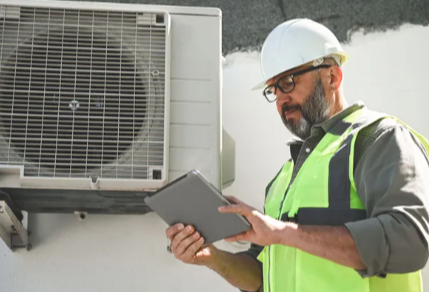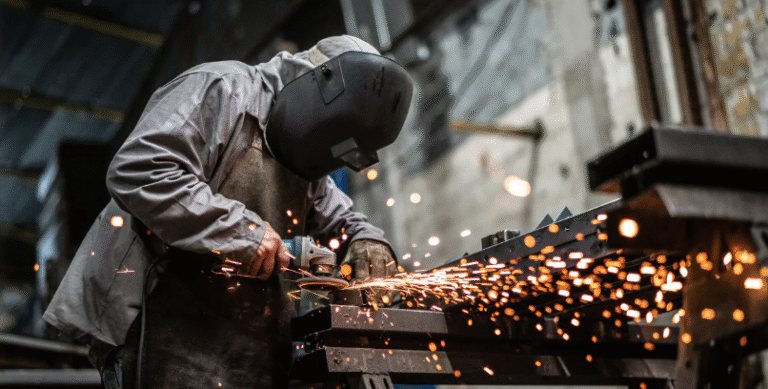Why Commercial Building Maintenance Isn’t Optional — It’s a Must
Maintaining a commercial building is often seen as just another line item on the budget, sometimes overlooked until a serious problem arises. However, when it comes to commercial properties, maintenance isn’t optional — it’s an essential part of protecting your investment, ensuring safety, and supporting business success. Ignoring maintenance can lead to costly repairs, legal headaches, and safety risks that no business owner wants to face. Let’s explore why commercial building maintenance is a must, not a maybe.
1. Protecting Your Investment
Commercial buildings are major investments, often representing millions of dollars in value. Proper maintenance helps preserve that value over time. Neglecting routine upkeep accelerates wear and tear, causing minor issues to snowball into expensive repairs.
For example, a small roof leak left unchecked can lead to water damage, mold growth, and structural weakening — problems that can cost tens of thousands to fix. Regular inspections and maintenance help identify issues early, extending the lifespan of your building’s systems and materials.
2. Ensuring Safety for Occupants
A top priority for maintaining any commercial building is ensuring the safety of everyone who works in or visits the property. Neglected maintenance can lead to serious hazards such as faulty electrical wiring, unstable structures, malfunctioning fire alarms, and blocked emergency exits—issues often addressed with the help of Fire Watch Companies in Philadelphia. These dangers not only put lives at risk but can also result in costly legal consequences if someone gets injured on your premises.
In Tulsa, OK, personal injury lawyers often handle cases stemming from such accidents caused by building neglect. By keeping your building well-maintained and compliant with safety regulations, you reduce the risk of injuries and create a safer environment for employees, customers, and tenants alike.
3. Avoiding Costly Emergency Repairs
When building systems break down unexpectedly, emergency repairs can disrupt business operations and lead to hefty repair bills. An HVAC failure during a heatwave or a plumbing issue causing flooding can halt work and lead to lost revenue. Scheduled maintenance reduces the chance of sudden breakdowns by catching and fixing problems before they become emergencies.
This proactive approach is far more cost-effective than reactive repairs and minimizes downtime, keeping your business running smoothly.
4. Complying with Legal and Insurance Requirements
Most municipalities have strict codes and regulations that commercial buildings must meet, including fire safety, accessibility, and structural integrity standards. Failure to maintain your building properly can result in fines, forced closures, or even lawsuits. Insurance companies also often require evidence of regular maintenance to approve claims.
Without proper upkeep, your insurance coverage could be jeopardized, leaving you financially vulnerable if damage or accidents occur. Staying on top of maintenance ensures you meet legal requirements and protect your insurance benefits.
5. Enhancing Property Appeal and Tenant Satisfaction
For commercial landlords, building maintenance directly impacts tenant retention and attraction. A well-maintained property shows that you care about your tenants’ comfort and safety, encouraging longer leases and reducing vacancy rates.
Clean, functional spaces also create a positive impression for customers and clients visiting your property. On the other hand, neglected properties often suffer from complaints, high turnover, and difficulty attracting quality tenants. Investing in maintenance is investing in your property’s reputation and profitability.
Read Also: The Future of Cummins Technology in Singapore: Innovations and Developments
6. Increasing Energy Efficiency and Reducing Operating Costs
Maintenance isn’t just about fixing things — it’s also about optimizing performance. Regular servicing of HVAC systems, insulation checks, and lighting upgrades help your building operate more efficiently, reducing energy consumption and utility bills.
For example, dirty filters and clogged ducts force HVAC units to work harder, wasting energy and increasing costs. Addressing these issues not only benefits your bottom line but also supports sustainability goals by lowering your carbon footprint.
7. Preserving Structural Integrity and Preventing Long-Term Damage
Buildings face constant exposure to weather, pests, and daily wear that slowly degrade their structure. Routine inspections and maintenance protect critical components like the foundation, roofing, windows, and exterior walls.
Catching cracks, leaks, or termite damage early prevents structural failures that are dangerous and extremely expensive to repair. Maintaining your building’s integrity safeguards its long-term usability and market value.
8. Supporting Business Continuity and Reputation
A commercial building is more than just a physical space — it’s the home of your business operations. Unexpected closures due to building issues can disrupt workflow, delay projects, and harm relationships with clients and customers. Consistent maintenance minimizes these risks by providing a reliable, functional environment.
Moreover, a well-maintained facility reflects professionalism and care, enhancing your brand’s reputation in the eyes of stakeholders.
Final Thoughts
Commercial building maintenance is not an optional expense or a task to postpone until “later.” It is a fundamental responsibility that protects your investment, ensures safety, reduces costs, and supports your business goals. By embracing a proactive maintenance strategy, you can avoid costly emergencies, comply with regulations, and create an environment where people feel safe and valued.
If you own or manage a commercial property, start treating maintenance as a top priority. Schedule regular inspections, invest in preventive repairs, and partner with trusted professionals who understand the unique needs of commercial buildings. The benefits far outweigh the costs — and the risks of neglect are simply too great to ignore.






